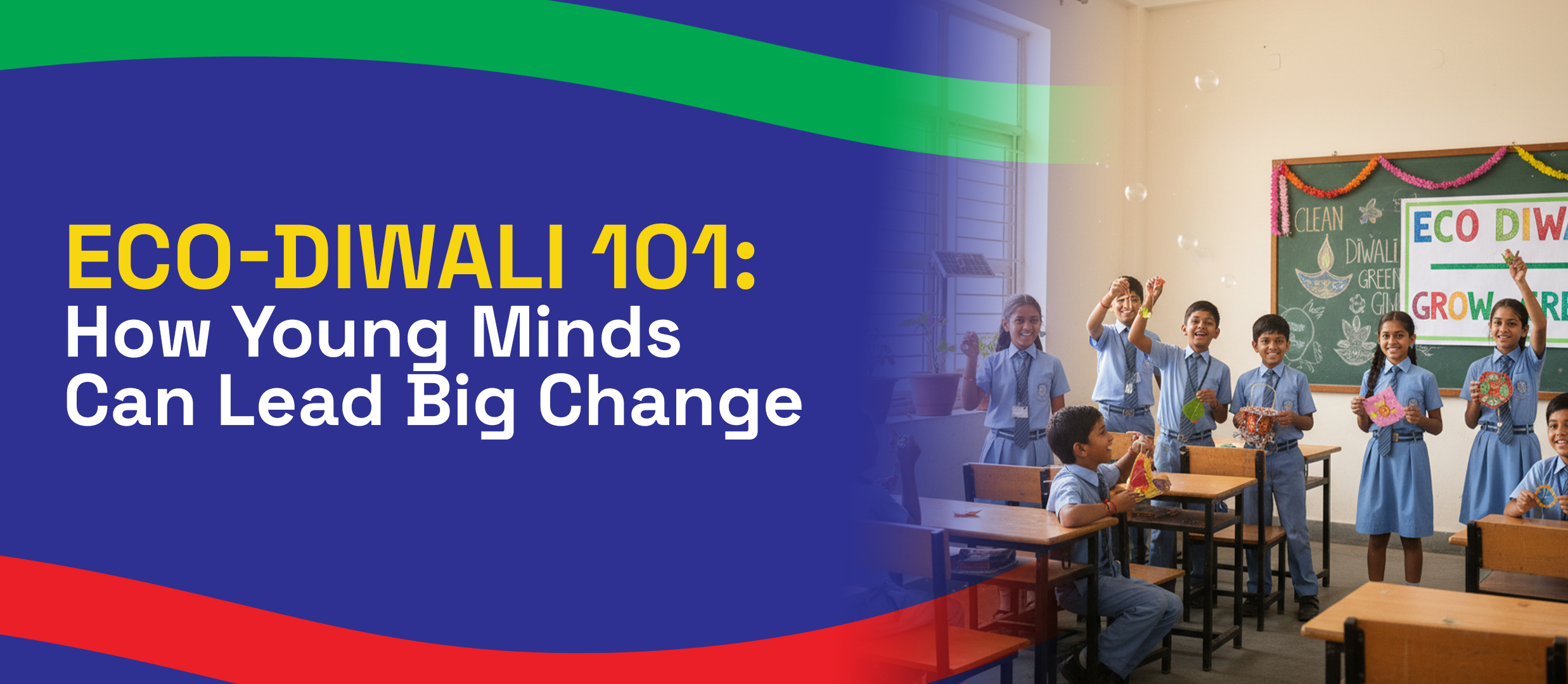Eco-Diwali 101 - How Students Can Lead the Change for a Greener Future
Oct 16, 2025
Celebrate an Eco-Friendly Diwali! Discover how young minds can drive sustainability, reduce waste, and make the festival brighter in meaningful ways.

Eco-Diwali 101: How Young Minds Can Lead Big Change
Diwali is an explosion of lights, colours and fun that we share every year. However, at the same time, it is also the biggest contributor of waste, smoke and noise pollution, which we don't talk about enough.
Picture a Diwali where light spreads without leaving a shadow behind. Enter our young changemakers. At VIS Dwarka Sector 10, we believe students are not only learners but leaders in creating a more mindful, sustainable tomorrow. So what better time to start than during Diwali?
1. What is Eco-Diwali, Anyway?
Eco-Diwali is not about giving up celebrating this joyful festival; it is about reframing how we celebrate.
Eco-Diwali means using our creativity to celebrate: earthen diyas instead of electric lights; using hand-painted paper lanterns; using flowers or rice powder to create rangolis at home.
The idea is simple: sharing in the joy of Diwali by being kind to the very planet that sustains us. Students can lead the conversation by sharing with their friends and neighbours, showing that small, mindful choices, combined, result in big changes.
2. The Influence of Minor Actions
A considerable portion of our environmental footprint is based on decisions that we make in our daily lives.
Using LED bulbs is an easy way to save energy. Purchasing local sweets and gifts is a good way to support businesses in your community while minimising excess packaging waste. Even something as trivial as reusing gift boxes and upcycling ornaments can spark others to take another view.
The younger generation's minds can even design “Green Pledges” that are short-lived campaigns or social media events to motivate their peers to make this Diwali cracker-free or plastic-free.
Keep in mind that one sparkler not bought sounds minor, but now multiply that mindset across hundreds of students, and you have an environmentally responsible activity in motion.
3. Craft, Create, Conserve
Who says sustainability isn't fun?
Eco-Diwali provides students an avenue to be creative - by making handmade greeting cards, diyas that are eco-friendly, or thoughtful gifts that honour the person instead of great gobs of plastic wrap. Schools and families can offer eco-donation workshops that use things lying around their homes to create beautiful decorations.
Eco-Diwali is about the resources saved, and about experiencing the joys of creating something that has personal meaning with one's bare hands.
4. Uniting Communities
Real change occurs when solo efforts become collective energy.
Students can be the vanguard of that transformation by designing clean-up days, tree planting days, or skit-based awareness campaigns in their community.
A community Diwali, where everybody is invited to participate, from grandparents to toddlers, transforms the event into a celebration of connectedness, thankfulness, and respect for nature.
When younger people lead with empathy and in full view of their mentors, adult behaviours are effectively reconsidered. This is a revolution, not because of rude things, but awareness.
5. Illuminating the Future
In essence, Diwali represents light prevailing over darkness, wisdom over ignorance.
When children practice pro-planet behaviours, they are not just protecting the planet; they are illuminating a new paradigm shift that youth will take into the future.
So this year, let each diya you illuminate represent more than just festivity - let it represent the family/community commitment to clean air, conscious celebration, and the hope of humanity.
Because the assertion of Diwali is not fireworks - it is hearts that care.
In Essence
Eco-Diwali is not a trend - it is a movement, and our young learners are leading it.
With their creativity, energy and empathy, they are showing we can celebrate and be sustainable at the same time. As we light our diyas this season, let’s remember: change begins at home, and sometimes, it begins in the hands of a child.